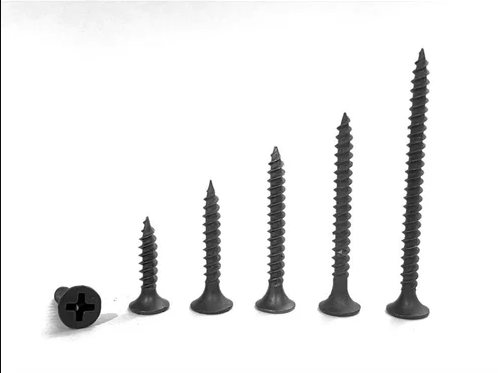Durable and Reliable Wood Screws for Superior Construction Projects and DIY Crafts
The Importance of High-Quality Wood Screws in Construction and Craftsmanship
In the realm of woodworking and construction, the importance of using high-quality materials cannot be overstated. Among these materials, wood screws hold a pivotal role. Wood screws are specially designed fasteners that provide strength and stability to various wooden structures. However, not all wood screws are created equal; the quality of these screws can significantly affect the durability and integrity of a project. This article explores the importance of high-quality wood screws, their benefits, and factors one should consider when selecting them for different applications.
Understanding Wood Screws
Wood screws are characterized by their sharp, tapered points and spiral threads that allow them to penetrate and grip wood effectively. They come in various shapes, sizes, and materials, each catering to different applications. High-quality wood screws are typically made from durable materials such as stainless steel, brass, or high-carbon steel, which provides resistance to corrosion, rust, and wear.
The Benefits of High-Quality Wood Screws
1. Strength and Durability High-quality wood screws are designed to withstand extensive pressure and tension without bending or snapping. This aspect is crucial in construction, where structural integrity must be maintained over time. A low-quality screw might fail under stress, leading to potentially hazardous situations.
2. Corrosion Resistance In environments where moisture is prevalent, such as outdoor projects or areas with high humidity, it’s essential to use screws that resist corrosion. High-quality wood screws, especially those made from stainless steel or coated with protective materials, safeguard against rust, ensuring a longer lifespan for the fasteners and the integrity of the project.
3. Ease of Use High-quality screws are often designed with features that facilitate easier installation, such as a sharper point for easier penetration into the wood, and more precise threading that allows for better grip. These features not only save time during the assembly process but also reduce the risk of damaging the wood.
4. Enhanced Aesthetics When visible, the appearance of screws can impact the overall look of a project. High-quality wood screws often come with finishes that not only prevent rust but also match or complement the wood's color and finish, providing a polished appearance.
5. Consistency and Reliability Premium wood screws undergo rigorous testing and quality control processes, ensuring that each screw meets high standards. This consistency reduces the risk of failure due to manufacturing defects, which is particularly important for large-scale projects or furniture production.
high quality wood screw

Factors to Consider When Selecting Wood Screws
When choosing wood screws for a project, several factors should be considered
1. Material The choice of material largely depends on the project’s environment. For outdoor projects, stainless steel or coated screws are recommended to prevent rust. For indoor applications, regular steel screws may suffice.
2. Size and Length The size and length of the screw must be compatible with the thickness of the wood being used. Using the correct size ensures a tight fit and enhances structural integrity.
3. Type of Drive Wood screws come with various drive types, such as Phillips, flathead, or Torx. Each type has its advantages in terms of ease of use and the ability to apply torque.
4. Thread Design The thread design can impact how well the screw grips the wood. Coarse threads are often better for softwoods, while finer threads may be suitable for hardwoods.
5. Cost vs. Quality While it might be tempting to opt for cheaper screws, investing in high-quality wood screws often proves more cost-effective in the long run. The risk of project failure due to inadequate fasteners can lead to expensive repairs and wasted resources.
Conclusion
In conclusion, the importance of high-quality wood screws in construction and woodworking cannot be overstated. These fasteners contribute significantly to the durability, stability, and aesthetic appeal of a project. By considering factors such as material, size, type of drive, and thread design, woodworkers and builders can ensure that they select the best screws for their needs. Ultimately, investing in high-quality wood screws is not just about fastening; it’s about ensuring that every project stands the test of time.
-
Top Choices for Plasterboard FixingNewsDec.26,2024
-
The Versatility of Specialty WashersNewsDec.26,2024
-
Secure Your ProjectsNewsDec.26,2024
-
Essential Screws for Chipboard Flooring ProjectsNewsDec.26,2024
-
Choosing the Right Drywall ScrewsNewsDec.26,2024
-
Black Phosphate Screws for Superior PerformanceNewsDec.26,2024
-
The Versatile Choice of Nylon Flat Washers for Your NeedsNewsDec.18,2024










